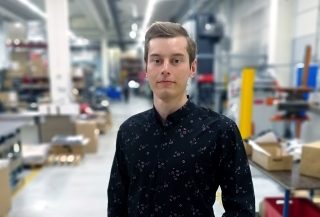Quantum Computing – Does it have anything to offer?
Quantum computing sounds like science fiction and has nothing to do with our daily lives. 70 years ago, when the first transistor computer experiments were done, I’m pretty sure that people had similar thoughts¹. “Everything can be calculated with pen and paper, why do we need computers to do the job?” After a while, the benefits of computers and IT-systems were noticed. Nowadays we would be helpless without an embedded system in our pockets.
Smaller isn’t always better
The same will probably happen to quantum computers during the next 70 years. As we are demanding more and more from the traditional binary computing, the physical limit of transistor size is getting closer². The past five decades or so, electronics have obeyed “Moore’s law”. It says that computers double in speed every two years, which has been correct at least for now³.
Photons or qubits to the rescue?
As transistors are getting smaller, electrons have trouble getting through the smallest components. We could replace the electrons with significantly faster photons⁴. But it doesn’t solve the issue limiting us from making “infinitely” fast computers. Photon chips would still use a binary system, which is limited to 0 and 1.
With quantum computers using qubits instead of bits, the state can be in principle both 0 and 1 at the same time, in superposition⁵. Without getting deeper into the details, this allows fast computing. For example, Google made an experiment with their 53-qubit system. They solved a numeric problem in 200 seconds that would have taken 10 000 years from the fastest supercomputer⁶.
Enabling scientific breakthroughs
The result itself didn’t have much use, but it demonstrated the power of quantum computing. As a species, we are comfort-seeking and therefore we use brute force to solve the most complicated scientific issues. Faster computers would thus allow us all sorts of scientific discoveries. Ranging from vaccines, antibiotics, AI, weather and climate models to cosmological findings.
Enjoy the ride
It takes years before quantum computers are practical. And they’ll probably never be on our desktops due to technical issues such as cooling. But as we have enjoyed the progress of binary computing, we can enjoy the progress of quantum computing too. In the future we may not have to worry about global pandemics due to more efficient vaccine development. Or to carry an umbrella just in case because weather forecasts are 99,9 % correct.
In the meantime, we could start to organize chaos due to the randomness of quantum behavior. Thanks to global co-operation we at TT Gaskets are becoming experts at organizing chaos and coping with difficult circumstances. Therefore, we are pioneers of quantum systems and still providing you Smarter Seals for a Safer Future⁷.
